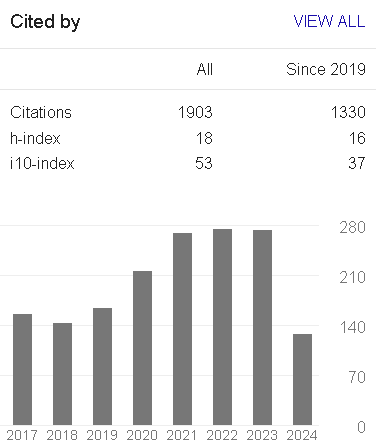Private Mobile Search Engine Using Various Locations
Keywords:
Clickthrough data, abstraction, location search, mobile search engine, ontology, user profilingAbstract
Mobile search engine is a meta search engine that imprisonments the user’s favorite in the form of concepts by mining their clickthrough data. It excerpts the importance of location information in mobile search and categorizes these concepts into content concepts and location concepts. By positioning by GPS, user’s locations are used to addition the location concepts in search engine. The user favorites are organized in ontology based, multi facet user profiles, which are used to familiarize a Personalizing ranking function for rank revision of search results. Mobile Search Engine typifies the diversity of the concepts related with a query and their significance’s to the user’s need. It associated with four entropies are presented to balance the weights amid the content and location facets. Based on the client-server model, it contains a detailed architecture and design for operation. In this design, the client gathers and stores locally the click through data to protect confidentiality. It discourses the privacy issue by restricting the information in the user profile exposed to the server with two privacy parameters are min Distance and expRatio. It prototypes search engine on the Google Android platform. It is an innovative approach for personalizing web search results. By mining content and location concepts for user profiling, it utilizes both the content and location preferences to personalize search results for a user. Mobile Search Engine incorporates a user’s physical locations in the personalization process. It is using a GPS location helps to improve retrieval effectiveness for location queries.
References
V. Roto, A. Popescu, A. Koivisto, and E. Vartiainen. Minimap: a web page visualization method for mobile phones. CHI 06: Proc of the SIGCHI conference on Human Factors in computing systems, pages 35–44, New York, NY, USA, 2006.
O. Kolesnikov, W. Lee, and R. Lipton. Filtering spam using search engines, 2003.
C. Ding, X. He, P. Husbands, H. Zha, and H. D. Simon. Pagerank, hits and a unified framework for link analysis. In Proceedings of the 25th annual International ACM SIGIR Conference, pages 353–354. ACM Press, 2002.
Pitkow, J., Schutze, H., Cass, T., Cooley, R., Turnbull, D., Edmonds, A., Adar, E., And Breuel, T. 2002.! Personalized search. Commun. ACM 45, 9, 50–55.
S. Chakrabarti, M. van den Berg, and B. Dom. Focused crawling: a new approach to topic-specific web resource discovery. In Proceedings of the 8th Intl. WWW Conference, 1999.
E.Agichtein E.Brill , and S. Dumais, “Improving Web Search Ranking by Incorporating user Behaviour Information”, Proc 29th Ann. InT’l ACM SIGIR Conf Research and Development in Information Retrieval (SIGIR) 2006.
Q.Gan , J. Attenberg, A. Markowetz and T Suel, “Analysis of geographic queries in a search Engine log”
Downloads
Published
How to Cite
Issue
Section
License
Copyright (c) 2015 COMPUSOFT: An International Journal of Advanced Computer Technology

This work is licensed under a Creative Commons Attribution 4.0 International License.
©2023. COMPUSOFT: AN INTERNATIONAL OF ADVANCED COMPUTER TECHNOLOGY by COMPUSOFT PUBLICATION is licensed under a Creative Commons Attribution 4.0 International License. Based on a work at COMPUSOFT: AN INTERNATIONAL OF ADVANCED COMPUTER TECHNOLOGY. Permissions beyond the scope of this license may be available at Creative Commons Attribution 4.0 International Public License.


